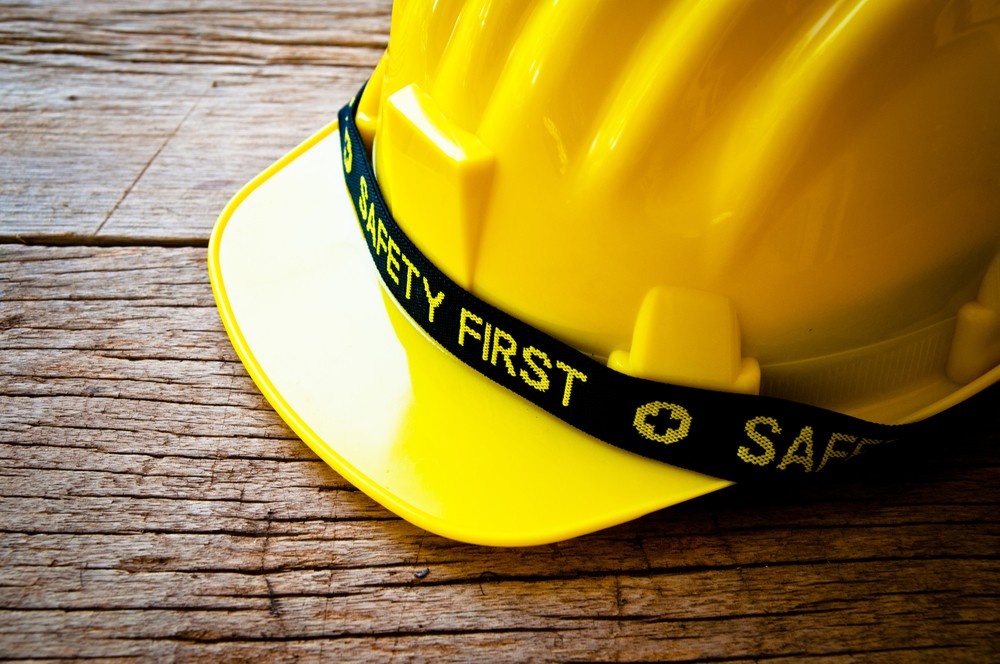News Post
May 2015 Newsletter
Dermatitis what you need to know:-
Having worked in the chemical industry, I have seen first-hand the effects that dermatitis can have on those whom it effects. Dermatitis is a significant problem facing those working in a whole range of industries; here SMSE consultant Will Pilkington outlines what you need to know about dermatitis, and how to prevent and mange its risks.
Click here to download SMSE dermatitis article
South Yorkshire firm fined £36,000 for safety breaches
A South Yorkshire-based metals business has been sentenced after it repeatedly risked workers’ lives by making them use dangerous machines, receiving 31 enforcement notices for safety breaches in just three months.
Crown Court was told that the metal company Meadowbank Vac Alloys was a serial safety offender. It allowed employees to operate vehicles and plant with category ‘A’ defects, the highest possible level meaning ‘immediately dangerous’, and continued to keep the machines in use even after being specifically prohibited from doing so by HSE.
Twenty enforcement notices were served by HSE at the end of May 2012 after a visit by inspectors to the firm’s site. The visit was prompted by a complaint voicing concern about the condition of the firm’s vehicles.
The notices covered a multitude of safety and health risks ranging from improvements needed to a variety of plant and lifting machines to the provision of basic welfare facilities for staff.
The court heard that there were a further four visits by HSE between then and early August when additional enforcement notices were issued. These included seven which banned use of three forklift trucks, three mechanical grabs and a loading shovel that had no brakes. All had category A defects, identified by an independent engineer.
Although numerous extensions of time were granted by HSE to the company to comply with the enforcement notices, the company continually failed to take adequate action and workers had to operate the defective machines.
HSE identified that on two occasions in July and August, prohibited machines were still being used. None of the defects had been rectified and again the company director was informed specifically what was needed for the notices to be complied with.
During the last inspection, in October 2012, HSE found the dangerous loading shovel still in use and with some 80 hours’ working time clocked up when it should have been idle.
In total 31 notices were served between 29 May and Aug 2012 identifying 57 safety breaches.
The company, was fined a total of £36,000 and ordered to pay £36,000 toward prosecution costs after pleading guilty to a single breach of the Provision and Use of Work Equipment Regulations 1998; and multiple breaches of the Health and Safety at Work etc. Act 1974, three relating to Prohibition Notices and two for offences of non-compliance with Improvement Notices.
After the hearing, investigating HSE inspector said: “The comapny displayed a reckless disregard for the safety of its employees and a persistent contempt for the legal notices issued requiring the firm to bring equipment to an acceptable standard.
“HSE exercised protracted patience with the company and was in regular contact with the director to ensure what was needed to comply was clear, unambiguous and fully understood.
“Despite being given ample opportunity, the company chose to ignore their responsibilities; put workers in danger on a daily basis; defy the law and turn a deaf ear to information, advice and guidance conveyed by inspectors and an independent engineer.”
Waste company sentenced over groundsman’s death
A waste management company has been ordered to pay a total of £265,000, for safety failings after a worker was killed when he was struck by a JCB loading shovel as he was clearing litter at a waste transfer station.
The worker, who had worked as a groundsman at the site since 2004, was struck and run over at the FCC Waste Services (UK), waste tansfer station in the summer of 2012. He died at the scene.
HSE prosecuted the company at Crown Court after an investigation found that it had failed to organise and control the workplace to ensure that pedestrians and vehicles could circulate and operate safely.
It was heard in court, that the site handled household waste and material for recycling which was delivered to the site by refuse collection vehicles. The vehicles would be driven across the manoeuvring yard, referred to as “the apron”, to a large warehouse known as the tipping hall. There were also two loading shovels operated by company staff working on the site, moving the tipped waste around and it was one of these which struck and killed the worker whilst he was litter-picking out on the apron.
FCC Waste Services (UK) Ltd was fined a total of £200,000 and ordered to pay costs of £65,000 after pleading guilty to breaching regulation 4(1) and regulation 17(1) of the Workplace (Health, Safety and Welfare) Regulations 1992 and to breaching regulation 5(1) of the Management of Health & Safety at Work Regulations 1999.
After the case, the HSE inspector, said: “The worker lost his life in what was an entirely preventable tragedy caused by the company’s failure to fully recognise and control the hazards arising from activities in and around the tipping hall at its waste transfer station.
“There are significant risks associated with operating large construction type vehicles on waste sites, particularly when, as in this case, the vehicles have restricted visibility. These risks are well known and easily controlled using reasonably practicable precautions.
“Every year many people are killed or seriously injured in incidents involving workplace transport, and there is no excuse for companies that neglect this risk. Pedestrians, whether they are employees or not, should be kept separate from these types of vehicles through physical barriers or safe systems of work that are clear and well supervised.”
Transport firm fined £500k after worker is crushed between two lorries
A transport company has been fined £500,000 after an employee suffered horrific injuries, including broken bones in her back and a punctured lung, when she was crushed between two lorries.
The Crown Court heard the female worker was lucky to be alive after the at the depot.
She broke 13 bones in her back, shoulders and ribs, and punctured a lung. The incident left her with severe head injuries, impaired vision and she required a tracheotomy. She suffered a cardiac arrest and was in intensive care for ten days.
The worker, who has a young son, needed to wear a body brace for four months and was confined to a wheelchair for some months although she has since regained some mobility. She still requires weekly physiotherapy.
An investigation by HSE found the worker was acting as a banksman, assisting a lorry driver to reverse park on a slope, at the time of the incident. The driver decoupled his trailer without engaging its parking brake, causing it to roll back and trap her between the two vehicles.
The investigation found TIP Trailer Services regularly allowed vehicles to park on a slope without the provision of chocks or similar devices. The company had no monitoring system to check whether drivers were applying their handbrakes properly.
The slope ended on a public road, so the risks were not just to pedestrians on site but also to passing pedestrians and drivers.
The company, pleaded guilty to two breaches of Sections 2 and 3 of the Health and Safety at Work etc. Act 1974, and was fined a total of £500,000 and ordered to pay a further £56,938 in costs.
Speaking after the hearing, the HSE inspector said: “The worker suffered severe life-changing injuries. Her family was told she would not survive the night but due to her level of physical fitness and her sheer determination she has fought back and is now on the road to recovery.
“It was common practice for drivers to park on a slope within the compound, which should never have been allowed as it was inevitable that sooner or later a driver would fail to put on their handbrake. This totally avoidable incident could and should have been prevented with nothing more than common sense.”
Two separate forklift incidents land produce company in court
An East Yorkshire produce company has been ordered to pay more than £46,000 after two workers were seriously injured by reversing forklift trucks in separate incidents at its vegetable processing factory. One of the worker’s injuries left him unable to work for a year and meant he had to move into a less physical administrative position on his return.
The first incident occurred at the MyFresh prepared produce factory, at Chicksands, on 15 January 2014 as the warehouse team leader was talking to another forklift driver in the goods yard.
He sustained multiple fractures to his right leg, hip and foot after being trapped between two forklifts. He was forced to undergo surgery to have metal pins and plates inserted into his injured leg, and also suffered nerve damage that has left him with drop foot.
The warehouse team leader was off work for a year, before returning to an administrative role as his injuries meant he was no longer able to cope with the physical demands of his former position.
An investigation by HSE into the incident found there were minimal restrictions on vehicle and pedestrian activity in the goods yard at the site. There were no specified vehicle and pedestrian routes, despite the area being cluttered and busy, and the supervision of yard activities was found to be inadequate.
As such, the company was served with an Improvement Notice to make changes to improve safety.
The notice required improvements to be made by 29 April, however, six days before the compliance date – on 23 April – there was a second incident in the same yard.
This time a quality control technician, was struck by a reversing forklift truck while inspecting raw material. He suffered a fracture to his lower left leg.
The court was told that both incidents could have been prevented had work in the goods yard, principally vehicle movements, been better controlled and managed.
MyFresh Prepared Produce Ltd, was fined a total of £38,000 and ordered to pay £8,320 in costs as well as a victim surcharge of £120 after pleading guilty to breaching sections 2(1) and 3(1) of the Health & Safety at Work etc. Act 1974.
Outside court, the HSE inspector said: “Prior to the two incidents, we identified evidence of near misses in the goods yard that should have alerted the company to the need to better manage the movement of people and forklift trucks.
“The risks were clear, but not enough was done to control them and the worker was seriously injured as a result.
“The second incident happened while changes were belatedly being made to improve systems of work in order to comply with the Improvement Notice. However, the company had failed to identify quality control operatives as persons at risk. As a result they had not considered what controls might be necessary to separate these workers whilst they were carrying out their checks in the yard.
“It was another incident that was entirely preventable.”
Court hears how worker lost finger in unguarded machine
A Nottingham firm which makes garden and household tools has been prosecuted after a worker had to have his finger amputated when it was crushed in an unguarded machine.
Nottingham Magistrates’ Court heard the shift manager, was working at Fiskars UK Ltd’s Bulwell factory when the incident happened..
He had stepped on to a block printing machine, which embosses foil using a weight pushing down on a ram. As he was adjusting the weight in an attempt to help maintenance colleagues to fix a fault, the controls of the machine were operated by a colleague, and the index finger of his left hand was crushed between the weight adjustment and the top of the ram.
His injuries were so severe his finger had to be amputated to below the second knuckle. He was off work for a month.
An investigation by HSE found a perspex guard on the machine was missing. The company had failed to ensure a safe system of work was in operation for the weight adjustments on the machine ram. In addition, there was no safe means of access and no safe method for the isolation of the machine.
Fiskars UK Ltd, was fined £3,000 with £2,288.10 costs after pleading guilty to breaching section 2(1) of the Health and Safety at Work etc. Act 1974.
After the hearing the HSE inspector aid: “This incident was entirely preventable yet several failures led to a man suffering a painful injury.
“To adjust the weight, workers were climbing on to the front ledge, a practice which should never have been allowed. Instead, Fiskars should have devised and implemented a safe system of work that ensured no-one had access to dangerous moving parts. In addition the workforce should have been provided with detailed training and instruction in how to carry out the task.”
Failure to follow risk assessment led to employee’s flash fire burns
A Moray-based firm has been fined for safety failings after a worker was seriously injured in a flash fire when he opened the door of a poorly ventilated shed, igniting dense smoke and causing him to suffer burn injuries and trauma.
Ravenhill Limited employee, was caught in a flashover as he opened the door to a shed which housed a pressure washer after spotting smoke seeping out from the edges. As he pulled the door open, dense smoke inside ignited and he was burned as a flash fire swept over him.
Colleagues extinguished the flames that were on the man’s back and helped him to put his hands in cold water. He was in hospital for eight days and unable to return to work for two months. He experienced ongoing trauma and had an additional period off work in 2014.
Peterhead Sheriff Court was told that on the day of the incident, a pressure washer had been left running unattended in the shed at the company’s premises with the lance and hose removed in an attempt to defrost it.
An investigation by HSE found that Ravenhill Limited did have a written safe working procedure for the pressure washer and had previously had access to the manufacturer’s instructions, both of which emphasised the need for it to be only used in a well-ventilated area. However, the company had failed to identify that the location of the pressure washer had inadequate ventilation and was therefore unsafe.
The shed had no means of extraction and the only ventilation available was to prop the door open or rely on the pressure wash hose to stop it closing.
Inspectors also found that freezing of the lance and hose of the pressure washer was a known problem amongst the workshop staff, however there was no safe system of work for defrosting them in cold weather. As a result unsafe working practices had developed, such as boiling kettles of water and pouring them over the lance and hose, or the method used on the morning of the incident – disconnecting the lance and hose and using the hot water from the pressure washer itself.
Ravenhill Limited, was fined £6,666 after pleading guilty to breaching section 2(1) of the Health and Safety at Work etc. Act 1974.
Following the case, the HSE inspector, said: “This was an entirely avoidable incident. The need for ventilation to prevent such incidences of combustion is well known and was acknowledged and documented by the company itself. Making sure this happened would have been straightforward.
“Sadly, the failure of Ravenhill to follow its own written risk management led to an employee suffering burn injuries and trauma as a result of poor planning.”
£7,000 fine for food company after worker injures hand
A Southampton worker suffered serious injuries when his arm was dragged into an unguarded part of a conveyor belt at a chicken hatchery business, a court has heard. The HSE said that the “debilitating and traumatic” incident could have been avoided had proper risk assessments, safeguards and controls been in place.
The Supervisor, needed hospital treatment and was unable to work for several months after the incident at Faccenda Foods hatchery.
Southampton Magistrates’ Court heard the victim’s left hand was pulled into the ‘running nip’ of the conveyor belt while cleaning the area. He was unable to reach an emergency stop control and a colleague had to stop the conveyor running so that the supervisor could be released.
He spent seven days in hospital, required two operations and needed several months off work. He now has limited use of his hand and although he has been able to return to work, still has physiotherapy to help increase his mobility.
The HSE investigated and prosecuted Faccenda Foods for safety failings after identifying that the dangerous nip of the belt was totally unguarded.
The court was told that Faccenda Foods, a UK foods business, had been prosecuted by HSE back in 2001 as a result of an incident involving poorly-guarded machinery.
Faccenda Foods, was fined a total of £7000 and ordered to pay £2909.25 in costs after admitting two breaches of the Provision and Use of Work Equipment Regulations 1998 and a single breach of the Management of Health and Safety at Work Regulations 1999.
After the hearing, the HSE inspector said: “The man suffered an awful injury to his hand which left him unable to use it for months. It was debilitating and traumatic.
“The fact is that it need not have happened at all. Faccenda Foods should have carried out a proper assessment of the risks involved in operating the machine. That would have identified the safeguards and controls and that were needed and the firm would have been able to put those measures in place.
“The risk to workers of becoming trapped in moving machinery is well-known in the industry and should not be under-estimated, as these incidents account for hundreds of injuries each year, and even deaths.
“If the guards that Faccenda installed after the man’s injury had been there at the time, it is extremely unlikely he would have become trapped.”
Faccenda Foods issued the following statement in response to the prosecution:
“Following an incident at Faccenda Foods’, the Health and Safety Executive (HSE) decided to prosecute and the matter was judged at Magistrates’ Court. The company immediately admitted responsibility and has given full co-operation to the HSE,” the, managing director of Faccenda Foods, said.
“In the incident, an operative, injured his hand in a piece of machinery. We are pleased to say that he has has made a full recovery and has returned to work.
“Faccenda Foods takes its responsibility for health and safety very seriously. We welcome the court’s judgement that the accident was low in culpability, risk and harm.
“The court recognised Faccenda Foods’ overall safety record and acknowledged the equipment and systems already in place for managing health and safety. It also noted the commitment and actions undertaken by Faccenda Foods following the incident to ensure further improvements.”
Latest News
Health and Safety in Schools Checklist
Health and safety should be a top priority in any workplace, but especially in schools. Not only are you responsible for your staff’s safety, but you need to maintain the welfare of your pupils too. To do so, you must uphold your legal complian..
It can be difficult to decide your future path - a lot can ride on it, after all - but a career in health and safety could be the right choice for you. There are several types of careers in the health and safety industry that might be a good fit..
What is ISO 45001?
If you’re wondering what ISO 45001 is, then this is the guide for you. Replacing the old OHSAS 18001 standard, ISO 45001 is the new international standard for occupational health and safety management. In this guide, we'l..
Who Enforces Health and Safety?
The enforcement of health and safety is crucial to maintain healthy workplaces. The term health and safety itself covers the safety legislation and safety law that comes under the Health and Safety at Work Act 1974. In general, this means t..
Health and safety training is a requirement in the workplace, no matter which sector you work in. Our experts at SMS Europe have been providing an extensive range of specialist health and safety services for almost 20 years. To help make work en..
Health and safety in the workplace is all about controlling risks in a way that protects both your employees and your company. Strong leadership, including your employees, managers, suppliers, contractors, and consumers, is a characteristic of great ..
Health and safety in the workplace is immeasurably important. But, without the Health and Safety at Work Act of 1974, we might have never prized safety so highly. This piece of workplace legislation is highly significant and indeed has transform..
Fire Safety and Fire Risk Assessment at Leased Offices and Buildings Fire safety at leased single and multi- tenanted offices can be approached in a number of ways. Generally speaking, there are three types of premises, (single occupancy lea..
Safety Gloves
Please have a read at SMSE Managing Director Philip Marsden's article on Safety Gloves which is published in the February 2022 edition of Health and Safety International Magazine. https://www.hsimagazine.com/article/fits-like-a-glove/ We wo..
Current Health and Safety Industry Trends
New Guidance Released for Managing Home Workers As an employer, you have the same health and safety responsibilities for those who work from home as you do for all other employees who may work from the workplace. In most cases, the dange..
Who Is Responsible for the Health and Safety on a Building Site? Legally, the responsibility of health and safety within the business lies with the employer. It is up to them to make sure the environment meets the necessary health and safety requi..
No one wants to be injured whilst at work, and no one wants their staff to be injured, especially whilst on the job. That doesn’t mean that accidents don’t happen. In fact, each year an average of 22 manufacturing workers die in workplace..












